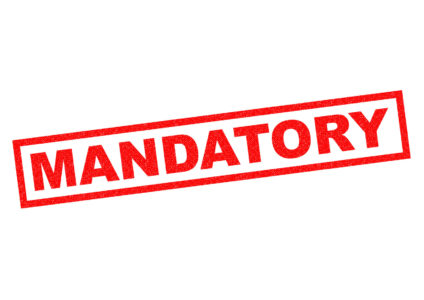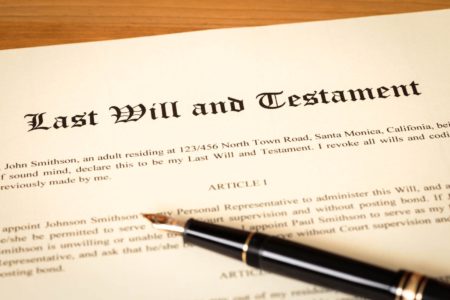What happens to car insurance if someone dies?
The executor of the deceased vehicle owner's will and estate will be responsible for what happens to car insurance if someone dies. Car insurance coverage will extend to the executor when they use the vehicle for estate business and funeral arrangements, but if anyone else wants to drive the vehicle they must be listed as a driver on the policy or transfer title and insurance to their name.
Read more
Free Car Insurance Comparison
Compare Quotes From Top Companies and Save
Secured with SHA-256 Encryption
Ty Stewart
Licensed Insurance Agent
Ty Stewart is the founder and CEO of SimpleLifeInsure.com. He started researching and studying about insurance when he got his first policy for his own family. He has been featured as an insurance expert speaker at agent conventions and in top publications. As an independent licensed insurance agent, he has helped clients nationwide to secure affordable coverage while making the process simpl...
Licensed Insurance Agent
UPDATED: Nov 12, 2023
It’s all about you. We want to help you make the right car insurance coverage choices.
Advertiser Disclosure: We strive to help you make confident car insurance decisions. Comparison shopping should be easy. We are not affiliated with any one car insurance company and cannot guarantee quotes from any single company.
Our car insurance industry partnerships don’t influence our content. Our opinions are our own. To compare quotes from many different car insurance companies please enter your ZIP code on this page to use the free quote tool. The more quotes you compare, the more chances to save.
Editorial Guidelines: We are a free online resource for anyone interested in learning more about auto insurance. Our goal is to be an objective, third-party resource for everything auto insurance related. We update our site regularly, and all content is reviewed by auto insurance experts.
UPDATED: Nov 12, 2023
It’s all about you. We want to help you make the right car insurance coverage choices.
Advertiser Disclosure: We strive to help you make confident car insurance decisions. Comparison shopping should be easy. We are not affiliated with any one car insurance company and cannot guarantee quotes from any single company.
Our car insurance industry partnerships don’t influence our content. Our opinions are our own. To compare quotes from many different car insurance companies please enter your ZIP code on this page to use the free quote tool. The more quotes you compare, the more chances to save.
On This Page
- In states where auto insurance is required, it’s the vehicle owner’s responsibility to carry insurance in their name
- If the vehicle owner passes away, the person in charge of the estate should keep the policy in the owner’s name until they change ownership with the DMV or there could be penalties
- If a spouse dies, property insurance policies have special provisions that automatically provide coverage to the surviving spouse until the policy is up for renewal
- If a single policyholder dies, the executor of the estate is covered under the policy to drive the covered property for maintenance purposes or to handle estate issues
- The executor isn’t covered to drive the vehicle for personal use unless they were already listed as a driver under the car’s policy
When someone you love passes away, one of the last things that you’re prepared to deal with is property insurance. After you take care of the funeral arrangements and you have a minimal amount of time to grieve, you’re left taking care of the business matters that come with the passing of a loved one.
Enter your zip code in our FREE quote tool above to start comparing car insurance rates now!
One of the business matters that you’ll be in charge of as the executor of the estate is dealing with existing auto insurance policies and property ownership transfers.
If you take missteps as you’re handling your end of things, you could make some very expensive mistakes that affect several people. Here’s what you need to know about car insurance contacts after the policyholder dies.
Why Insurance is Mandatory in most States

Every state has either a financial responsibility system or a mandatory insurance system in place to that property owners are able to pay for damages that they’re liable for.
Since liability plays a huge role in who’s held accountable for paying for medical bills and repairs in tort states, maintaining insurance is a must.
Compare quotes from the top car insurance companies and save
Secured with SHA-256 Encryption
The Importance of Insurance for Future Registration and Titling Purposes
Even though more than one person might have a financial interest in the car, it’s the registered owner’s responsibility to keep insurance active at all times. If the registered owner passes away, the responsibility passes on to their heir.
Keep the policy in the registered owner’s name until changes are made official through the DMV.
It’s tempting to cancel the deceased’s policyholder quickly following their death when the vehicle isn’t being operated, but doing this will pose problems in the future when you want to make changes to the title or when you want to name a new registered owner.
Since there are penalties for letting the insurance lapse, the fines could transfer over and make changing ownership very expensive and very difficult.
What type of penalties could there be if you cancel the coverage?
You’ll face direct and indirect consequences for canceling the car’s insurance too early without getting advice from a law expert or an insurance expert.
Whoever ends up taking possession of the asset is the one who’s going to get stuck paying the price. In many instances, that someone is you. Here’s a list of those penalties:
- Electronic reporting shows an insurance lapse and the registration is suspended
- You’re ordered to pay a fine for lapsed insurance and a fee to reinstate the registration before the car can legally be operated
- If you drive the vehicle while the plates are suspended, you could face a driving without insurance charge or vehicle impoundment
- Since impound yards have very strict rules regarding who a car can be released to, the car may be in storage racking up fees for weeks until you can gather your documents
- You may be ordered to appear in court for being uninsured where you could be assessed a community service requirement
- The driving without insurance conviction will remain on your driving record and could affect your personal insurance status
Compare quotes from the top car insurance companies and save Secured with SHA-256 Encryption
Are there auto insurance contract provisions that deal with death?
You know not to remove coverage from the vehicle, but do you really understand the contract provisions that deal with the death of an insured?
Insurance companies are prepared to deal with some of the most complex situations. Some of these scenarios involve a deceased vehicle owner and extending coverage to another party.
Compare quotes from the top car insurance companies and save
Secured with SHA-256 Encryption
How does the auto insurance contract work when there’s a surviving spouse?

If the named insurance passes and they were married at the time of their death, the surviving spouse may have coverage under the policy for a limited amount of time.
In most cases, the contract says it’s the spouse’s duty to notify the company within 30 days of the named insured’s passing.
As long as the spouse notifies the insurance company in a timely manner, coverage will extend to the spouse while they drive the vehicle.
The coverage is extended to the spouse for the remainder of the term without changing the risk. If the spouse wants to maintain coverage at renewal, they must have a policy written in their name.
What happens when a single policyholder dies?
When an unmarried named insured passes, the situation gets a little harrier. Since there’s no spouse with an automatic insurable interest in the property, the company must put limitations on who is covered and how they are covered.
This is true even when the person handling the policy is the executor of the estate.
The legal representative handling your estate or your trust is covered when they’re driving your vehicle as long as they have the official documentation.
Unfortunately, if the representative isn’t already a listed driver on the policy, there are some major driving restrictions.
What are the restrictions for executors?

Whether or not you were a listed driver on the policy before the named insured’s death is a huge deal. If you didn’t live in the home and there was no need for you to drive the car, you won’t be free to drive the car for just any reason. Here are some of the reasons that you can drive:
- You are taking the vehicle to get maintenance done
- You are taking the vehicle to the DMV
- You are going to a mechanic to get repairs
- The purpose of your drive is to preserve the asset in some way
- You’re going to court to handle the estate
It can take years to settle an estate in probate court. Until it’s settled, it’s difficult to transfer ownership of property. Before you assume that you’re covered to drive a car that you’ve inherited, check with the company.
Being given permission in the past doesn’t mean that permission is still valid.
It’s your responsibility to transfer the title and registration in your name. When you do this, it’s your job to buy insurance that satisfies state law. You can add the vehicle to your policy or shop around to find a better rate elsewhere.
If you’re shopping, don’t forget to use a comparison quote tool online for convenience. Enter your zip code in our FREE tool below to compare car insurance rates instantly!
Compare quotes from the top car insurance companies and save
Secured with SHA-256 Encryption
Ty Stewart
Licensed Insurance Agent
Ty Stewart is the founder and CEO of SimpleLifeInsure.com. He started researching and studying about insurance when he got his first policy for his own family. He has been featured as an insurance expert speaker at agent conventions and in top publications. As an independent licensed insurance agent, he has helped clients nationwide to secure affordable coverage while making the process simpl...
Licensed Insurance Agent
Editorial Guidelines: We are a free online resource for anyone interested in learning more about auto insurance. Our goal is to be an objective, third-party resource for everything auto insurance related. We update our site regularly, and all content is reviewed by auto insurance experts.